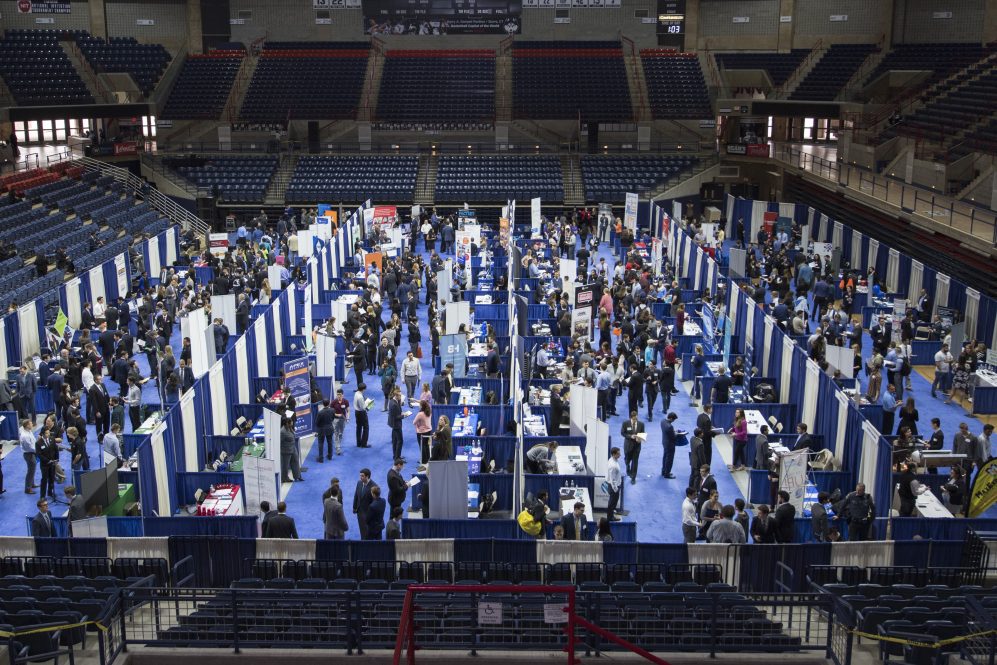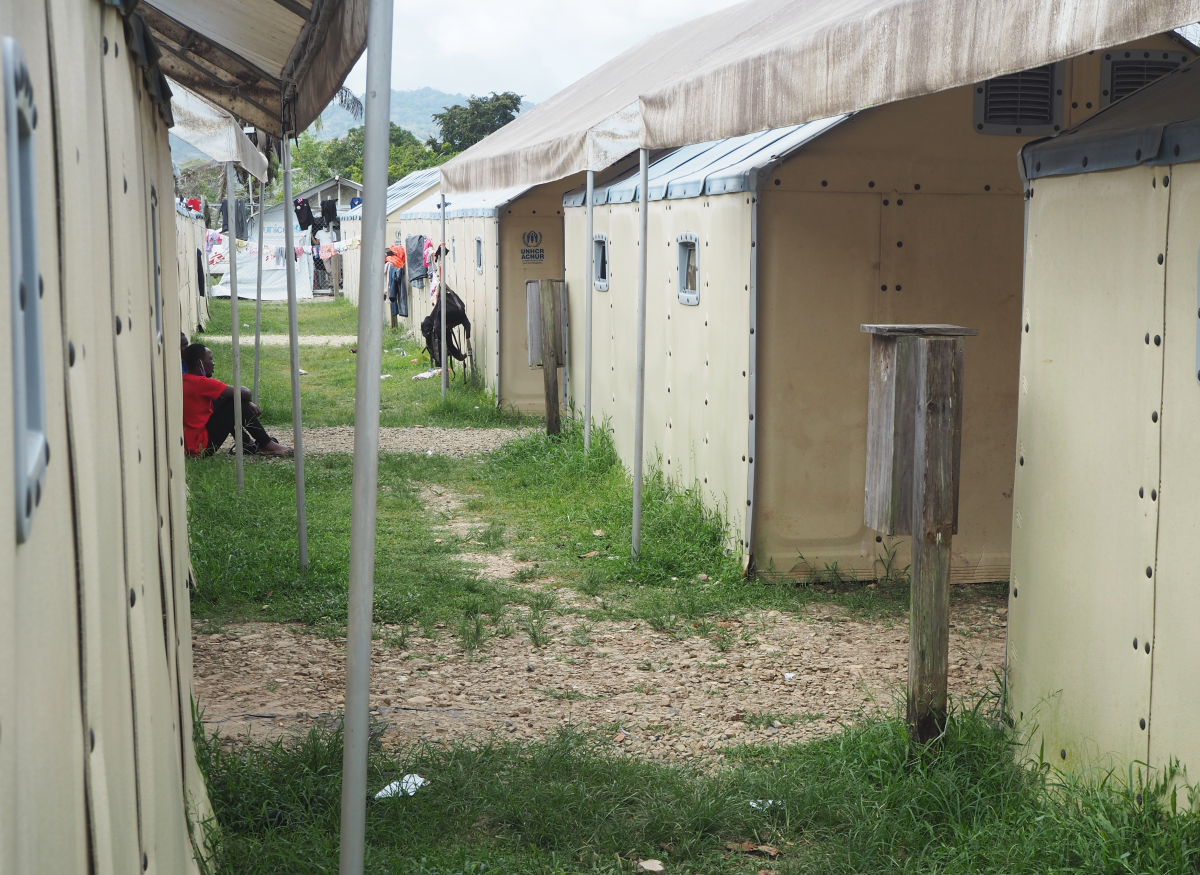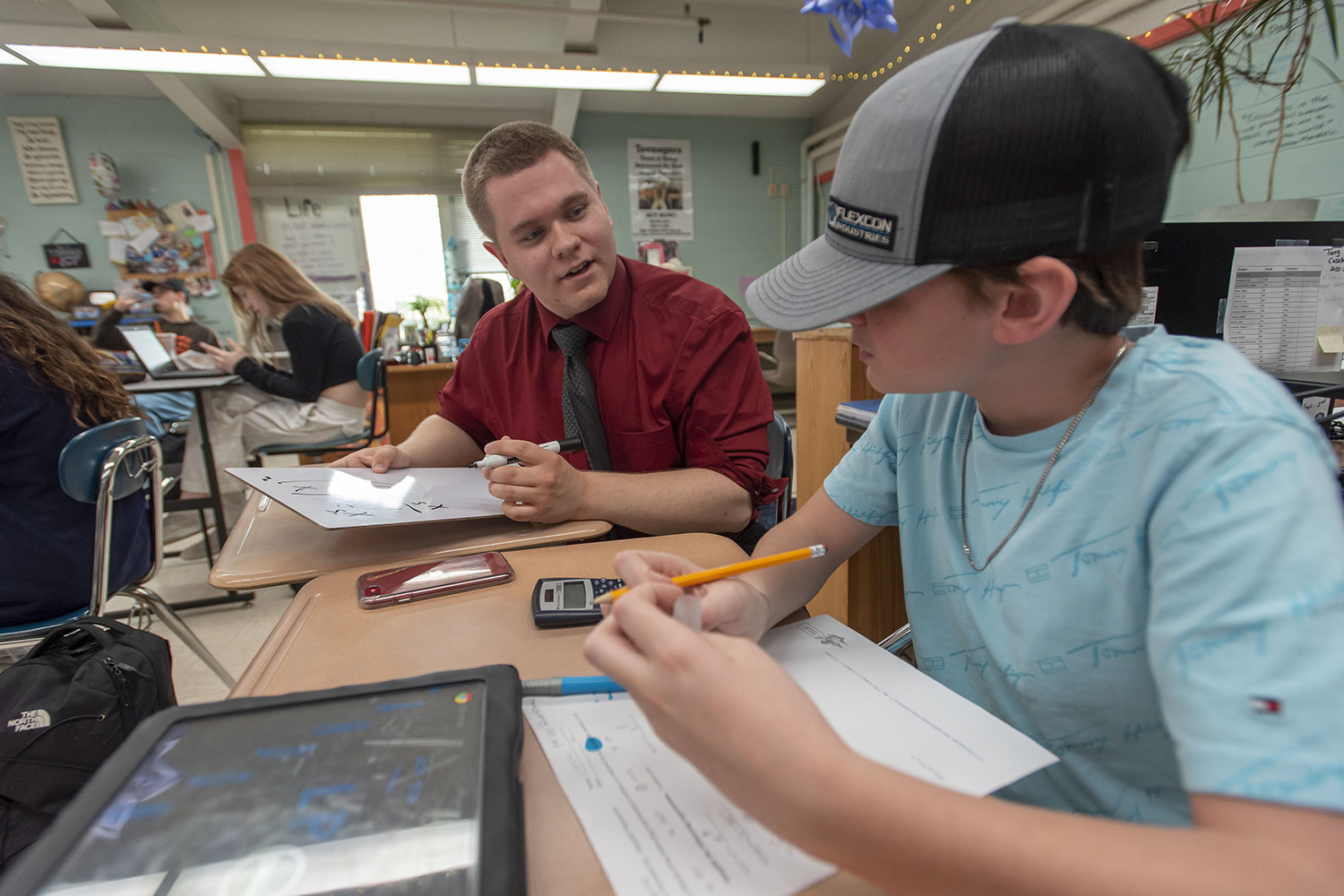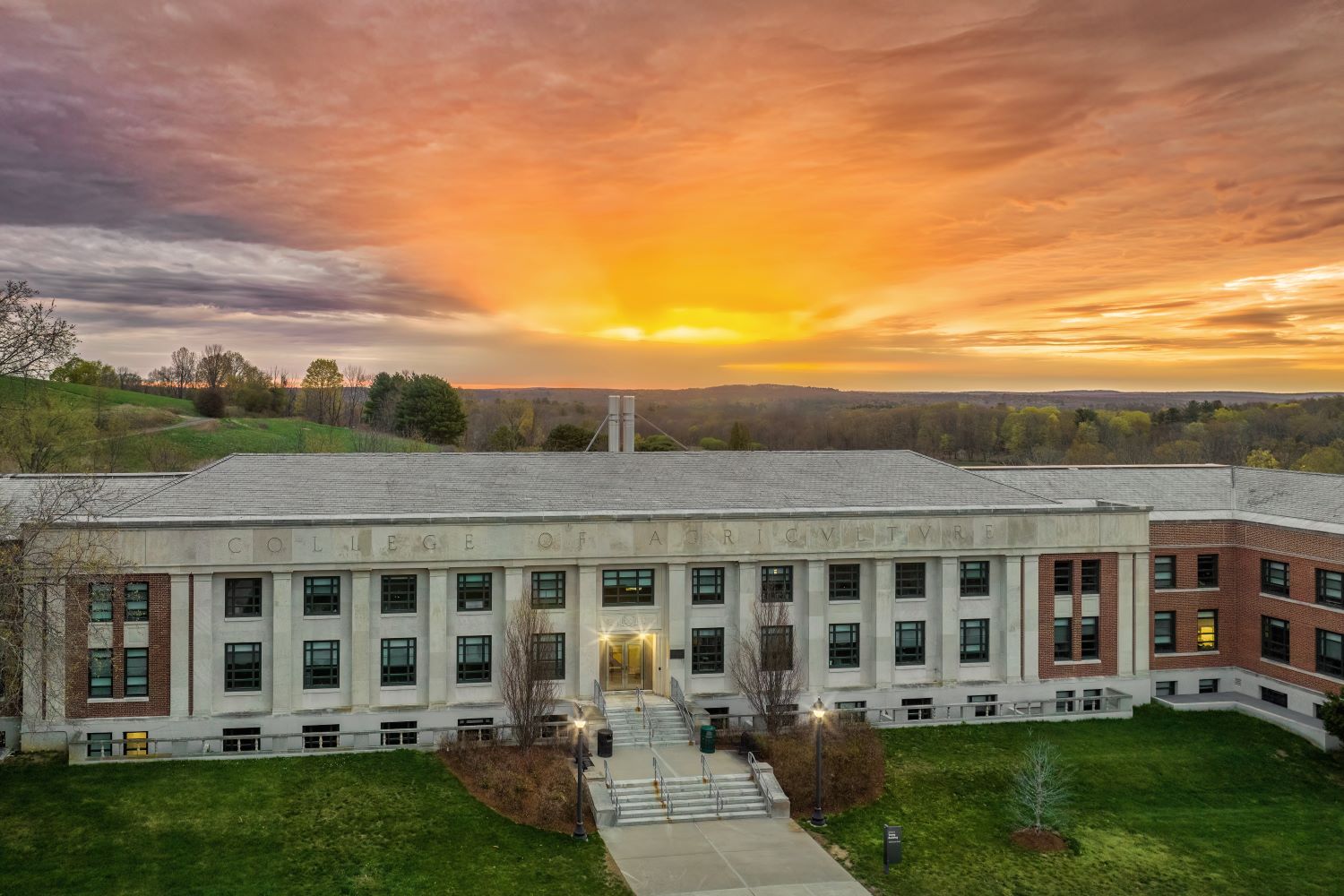Like so many other aspects of life, the COVID pandemic has upended the process of searching for internships and full-time jobs for many current and graduating UConn students.
But there’s good news on the horizon: For the first time in two years, UConn is able to return to in-person career fairs – albeit with many health and safety precautions – while continuing to offer the popular virtual fairs, on-demand resources, and other online programming it expanded during the pandemic.
In terms of employment, UConn’s Center for Career Development did not miss a beat during the pandemic in helping students get internships and jobs, as evidenced by data about post-graduation outcomes.
However, being able to again offer in-person career fairs is a milestone that many students and employers eagerly awaited. The traditional events, along with the virtual and online resources, are critical tools in UConn’s efforts to foster students’ career development from their freshmen year through graduation.
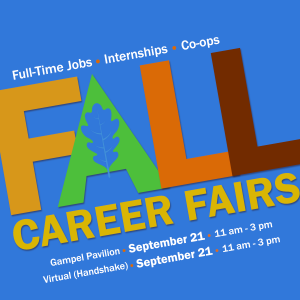
The Center for Career Development is hosting its new in-person career fair on Tuesday, Sept. 21, in Gampel Pavilion, followed with a complementary virtual fair on Sept. 28. More than 200 employers will participate in the events, representing all industries and hiring all majors for jobs and internships. Students from all campuses are being encouraged to attend both fairs; alumni are welcome as well.
The Center for Career Development collects data each year about graduate outcomes under national standards set by the National Association of Colleges and Employers (NACE). UConn has been participating in the survey since the 2015-16 academic year.
For the Class of 2020, the most recent full year for which data is available, about 85% accomplished what they set out to do – despite the pandemic’s challenges — within the six months of their graduation, be it launching their career, enrolling in graduate school, or taking on other pursuits such as volunteering or military service. Final numbers for the Class of 2021 will be published in November.
Jim Lowe, UConn assistant vice provost and executive director of the Center for Career Development, says trends from survey responses received so far make him optimistic that 90% or more of the Class of 2021 graduates had favorable outcomes.
“Given all the external factors and challenges impacting post-graduation opportunities over the past 18 months, this is a considerable achievement and brings our student post-graduation success rate back to the levels we experienced pre-pandemic,” he says.
In a normal year, the career center hosts career fairs throughout UConn’s campuses, along with fairs focused on specific industries or employers and career development events throughout the year. UConn’s last in-person career fair at Storrs took place in September 2019.
Its big annual Spring Career Fair had been planned for March 2020, but the University had to quickly pivot when the campuses were closed one week ahead of the fair and students were sent home to complete the semester remotely.
That didn’t erase the need, though; students still sought internships and jobs, and companies still looked to UConn to help them recruit talented new employees. If anything, the pandemic made it even more critical for UConn to work as a go-between to connect students and employers, who had few ways to find each other, Lowe says.
“We knew we had to up our game in many ways, including launching an extensive social media marketing campaign and further building out our online support and resources,” he says.
“When you think of a student who has never engaged with a potential employer virtually and suddenly that is their only option, they’re not going to know how to make those connections independently,” Lowe says, adding it also complicated recruiters’ efforts to meet and interview potential new employees.
Rather than cancel the March 2020 career fair due to the pandemic, UConn became one of the first in the nation to transition it to a fully online event to link students and potential employers. It was hailed as a model for other institutions, with Lowe and his staff invited to share the process and strategy on panels with national and international audiences.
The University also added extensive on-demand programs on its career development website, including a library of 160 career-related YouTube videos and other resources that continue to grow and have been very popular with students.
We knew we had to up our game in many ways, including launching an extensive social media marketing campaign and further building out our online support and resources. — Jim Lowe, assistant vice provost and executive director of the Center for Career Development
Lowe says they found through surveys that students and employers like the virtual career fair options and want to continue using them – particularly when they have simple or short questions or want quiet, private conversations – but were eager to return to in-person career fairs as well.
“There’s an excitement in the air when you’re at an in-person career fair and students are walking up and down the aisles to explore the options, and when they get to sit down face to face with someone to talk about careers and create that personal contact,” Lowe says.
Allison Eastwood, a Cigna senior recruiter in early-career recruiting and university relations, says career fairs provide an ideal format in which to make meaningful connections with the students.
“Moments where you introduce your company for the first time to a student, or a student has made a beeline to your career fair booth and is excited to connect with you, are priceless,” she says.
“The virtual fairs aren’t exactly what we’ve experienced in Gampel, but when I turn on my camera and invite students into my home office to talk about Cigna and their experiences, it still gives us the opportunity to make those connections and give a peek into our culture and the flexibility we offer as an employer,” she adds.
Many companies, Cigna included, host a variety of virtual events such as panel discussions, coffee chats, and other opportunities that the Center for Career Development posts on in its virtual community, Handshake.
“My message to students: Pay attention to the Career Center’s communications about events and employer activities with UConn. We couldn’t be happier to recruit students from UConn,” Eastwood says.
In addition to Cigna, some of the many other employers participating in the upcoming career fairs include The Hartford, Travelers, Synchrony, Electric Boat, Otis Elevator, Pratt & Whitney, Toyota, Collins Aerospace, Amazon, Eversource, Henkel, Infosys, and scores of others of all sizes and in multiple industries.
Many, such as The Hartford, have participated in UConn career events for many years and are among the largest employers of UConn alumni.
“Career fairs – both in-person and virtual – are an invaluable opportunity to get to know a multitude of high-performing students with diverse backgrounds and skills, all through a single event,” says Mark Turek ’04 (CLAS), University Relations Consultant for The Hartford.
“The fairs are also an occasion to share The Hartford’s story and brand with soon-to-be graduates who may not otherwise be thinking about the insurance industry as a career choice,” he says.
“UConn is a top recruiting source for The Hartford. The students have a reputation for being top performers and successful in their careers at our company. As a UConn grad myself, I take a lot of pride in recruiting from my alma mater and watching fellow alumni flourish,” Turek says.
As for health and safety precautions, the upcoming in-person career fair will be a completely touchless environment: no shaking hands, more spacing between tables and limits on the number of people at each of them, and no communal coffee stations or sit-down luncheon spots that might encourage people to gather too closely.
Even the on-site computer access has been changed. In the past, students typed in their student ID number or other information on shared public keyboards; now, they will do it virtually by scanning a QR code and entering information on their phones.
A committee in UConn’s career development office has been meeting weekly for the past six months to predict and address those kinds of issues of health and safety, logistics, and student access.
The work can range from something as complex as setting up the huge career fair down to the simple but critical need to remind students in the summer to pack career-ready clothes so they don’t have the added stress later of finding appropriate attire.
The career center also has a contingency plan in place that lets it immediately flip any in-person fairs now or in the future to a virtual fair without skipping a beat if the University’s COVID monitoring status for in-person events moves from its current orange to red, Lowe says.
“In whatever ways we need to, we would come together as a community focused on career development to show our students that number one, everything is still moving forward and you are valued; and number two, to employers, that we have great talent at UConn and we really want you to meet them,” Lowe says.
